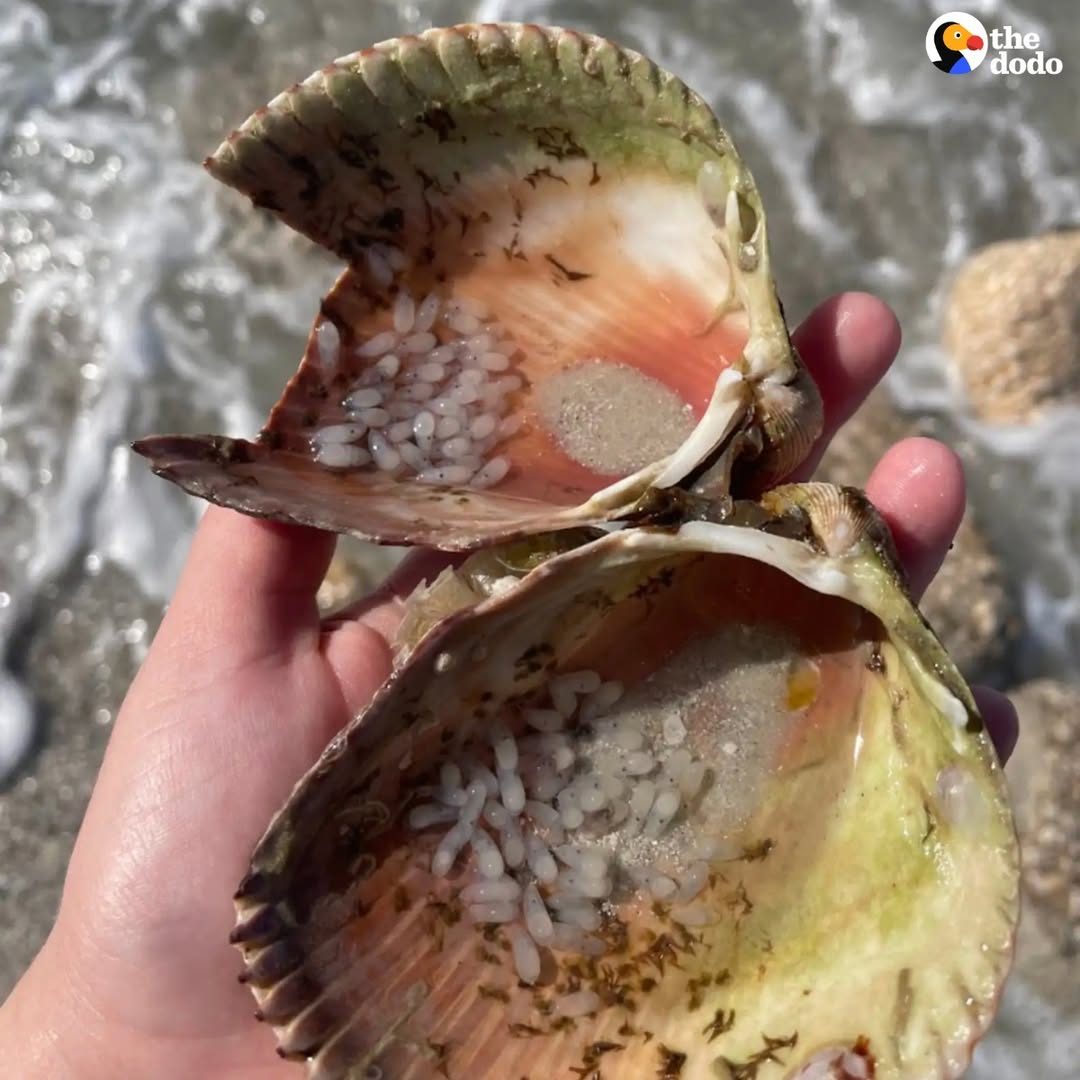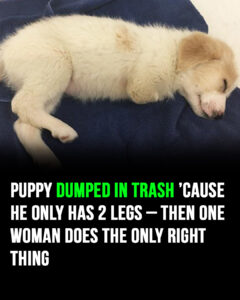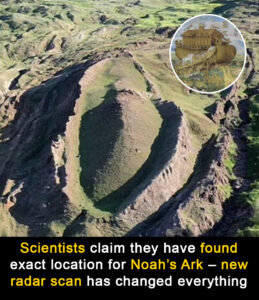In Tampa Bay, Florida, Brianna Varner has made it a habit to visit Pass-a-Grille Beach after storms pass through the area. The storms often leave stranded animals in need of help, and Varner, with her love for nature, always steps in to assist them. One particular day, while walking along the beach, she stumbled upon an open pen shell. What she found inside would lead her on an unexpected journey of discovery.
At first glance, Varner saw what appeared to be small eggs inside the shell. Assuming they were snail eggs, she was curious but cautious. However, when she gently touched the eggs, she quickly realized they were different. They were unusually soft, squishy, and gelatinous, unlike any snail eggs she had encountered before.
“I noticed all these little, bubble-looking things inside,” Varner explained. “When I touched the edge of it, I realized they were super soft and squishy.” Upon closer inspection, she noticed something even more incredible. Tiny embryos could be seen moving inside the eggs. “I could see the little eyeballs,” she said. “And as I kept looking closer, I saw the tentacles.”
It was then that Varner made the connection: These weren’t snail eggs, but octopus eggs. Knowing how fragile these embryos were, Varner carefully moved the shell back into the water, ensuring they wouldn’t dry out. Little did she know, her encounter with the eggs was just the beginning of an extraordinary discovery.
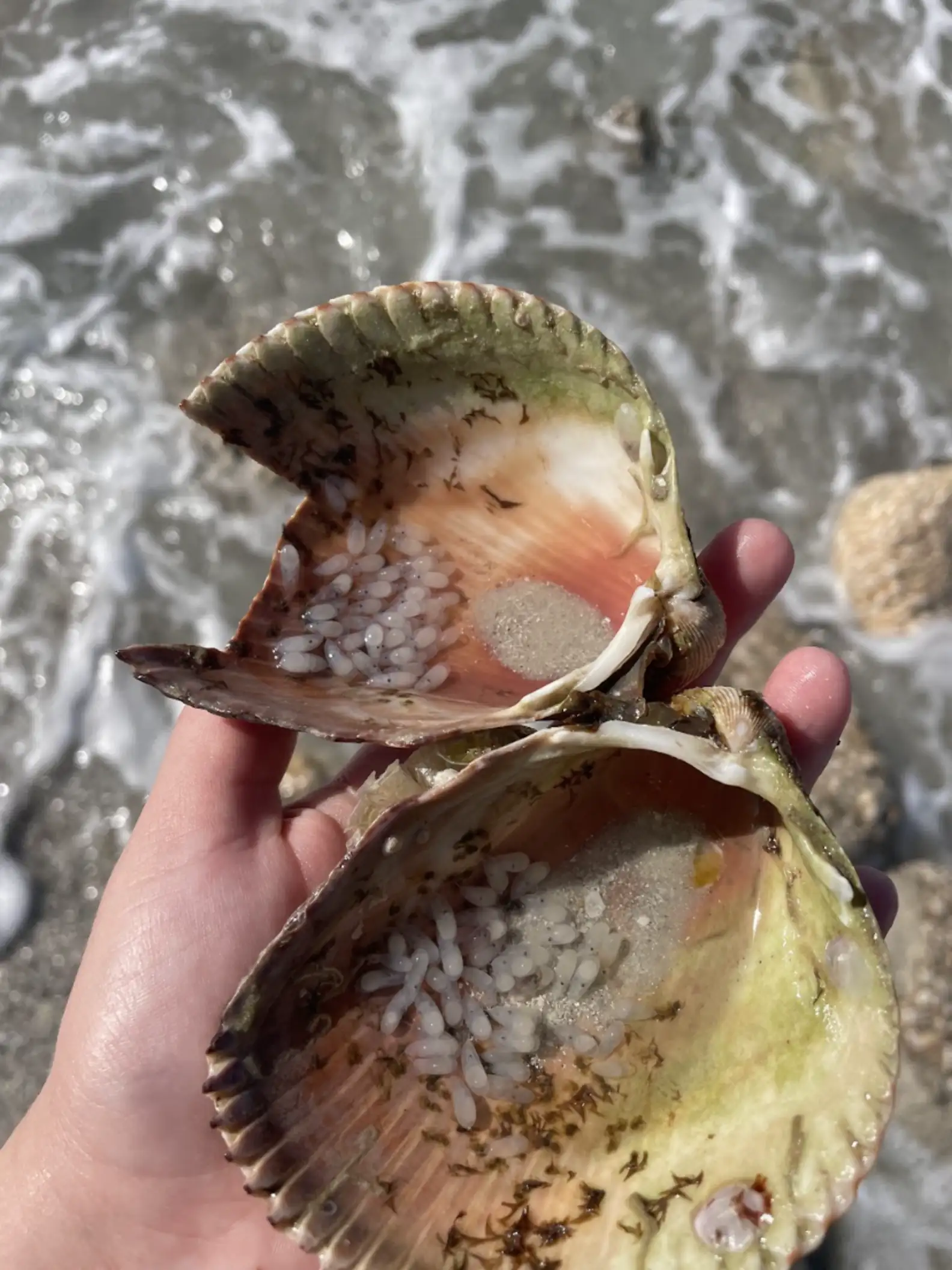
The Pygmy Octopus: A Fierce Protector of Her Eggs
Later that day, Varner made another remarkable discovery — a beached pygmy octopus. Despite knowing that wild animals can be dangerous, Varner made the decision to help the octopus by returning it to the water. As she picked the octopus up, it bit her in protest. “It was a quick little bite,” Varner recalled, “but I quickly recovered and got her back to safety.” She couldn’t help but admire the octopus’s determination to defend itself, a characteristic she would soon come to know well.
After her encounter with the octopus, Varner continued her walk and found another pygmy octopus, this time curled up inside a shell and guarding another set of bubble-like eggs. “That’s when I connected it,” Varner said. “I realized those were octopus eggs, and the mama octopus had gotten separated from her brood.” Varner marveled at the mother octopus’s fierce protection of her eggs. Despite the bite, she felt honored to help the octopus in any way she could.
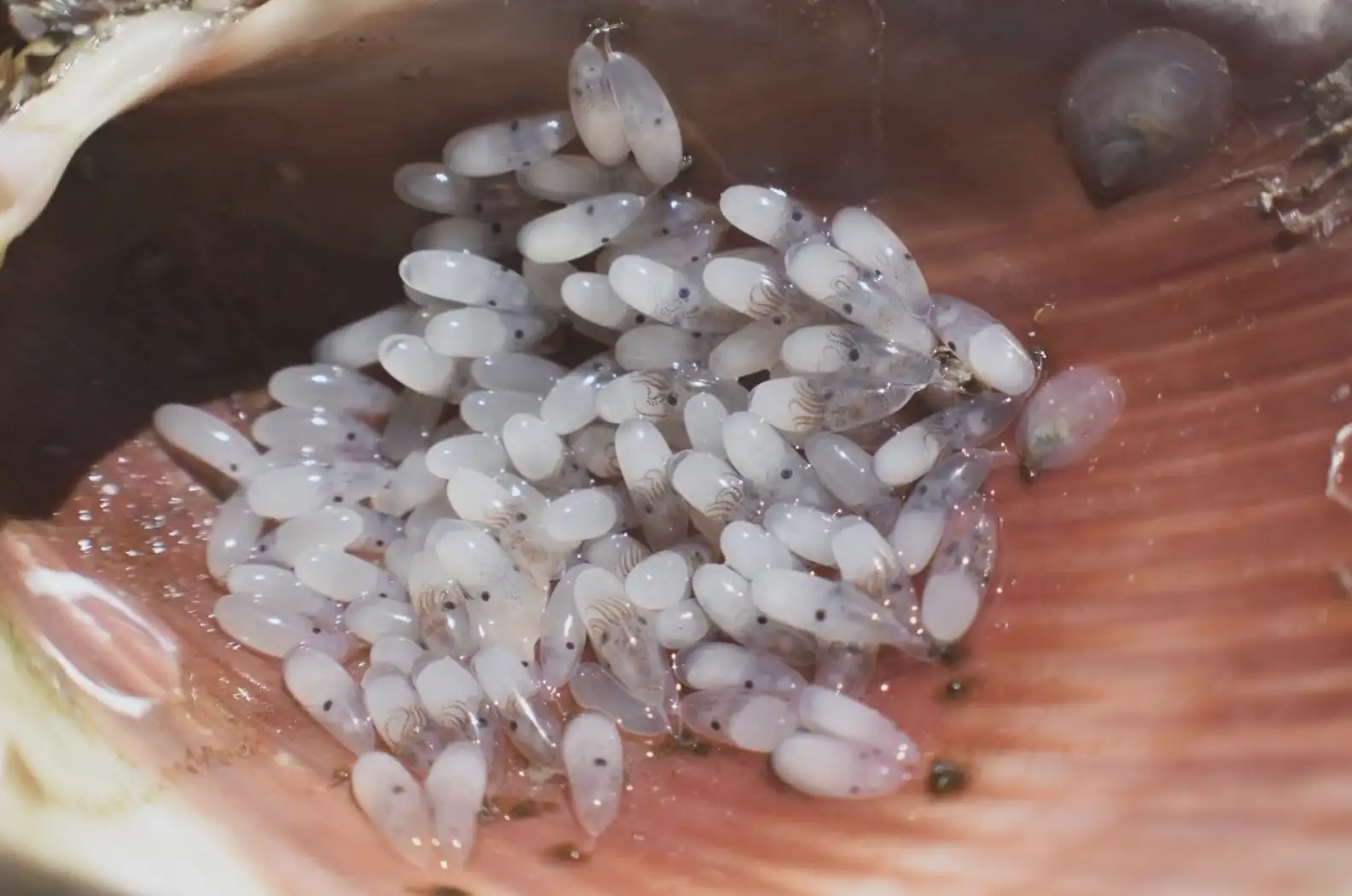
“It was just really cool to think about how fiercely she defended her babies,” Varner reflected. “Even though she’s small, she’s so powerful in protecting them.”
Observing the Octopus Life Cycle
Over the next few weeks, Varner made it a point to return to the beach daily, monitoring the octopus eggs and the surrounding area. She witnessed the eggs develop and observed the fascinating process of octopus birth. The eggs were thin and delicate, and Varner could see the tiny octopuses forming inside. She described the experience as surreal, saying, “You could really see everything in the eggs. It was crazy to watch the little octopus forming inside.”
Varner was able to witness the eggs hatch, an extraordinary moment that few get to see in person. Watching the octopuses at different stages of development, from the early formation of the embryos to the moment they hatched, filled her with awe and respect for these creatures.
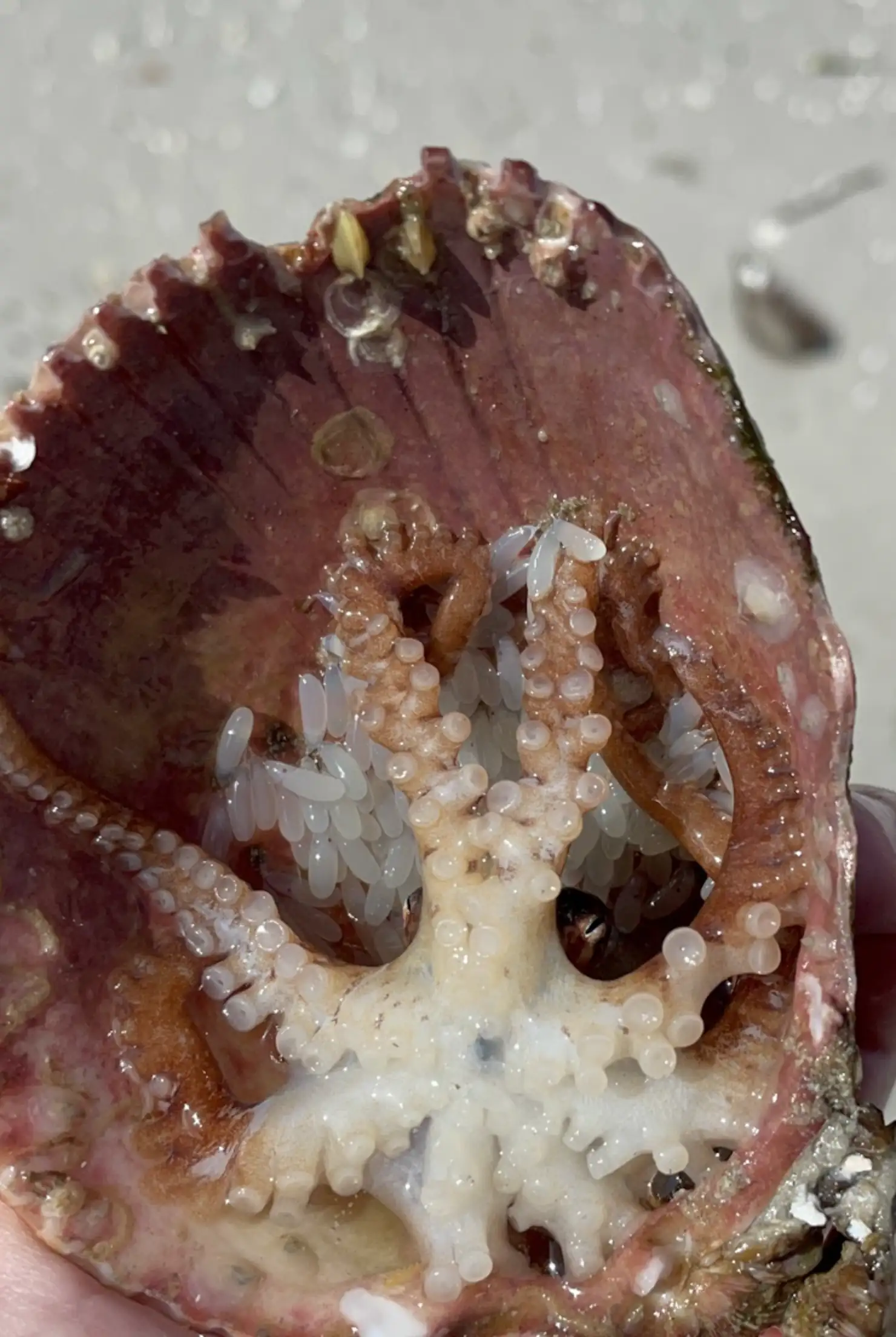
The experience also deepened her appreciation for the dedication of mother octopuses. Known for their incredible instincts, female octopuses guard their eggs until they hatch, often sacrificing their own lives in the process. It’s a testament to their fierce maternal instinct, which Varner witnessed firsthand.
The Fascinating World of Octopus Reproduction
The reproduction process of octopuses is both unique and fascinating. After mating, female octopuses lay hundreds of eggs, which they guard and protect until they hatch. During this time, the mother octopus does not eat and spends all of her energy protecting her eggs. Once the eggs hatch, the mother dies, having given her all to ensure the survival of her offspring.
The life cycle of an octopus is brief, yet it’s filled with incredible stages of development. The tiny embryos that Varner observed in the eggs would eventually emerge as fully formed octopuses, ready to begin their own journey of survival in the wild.
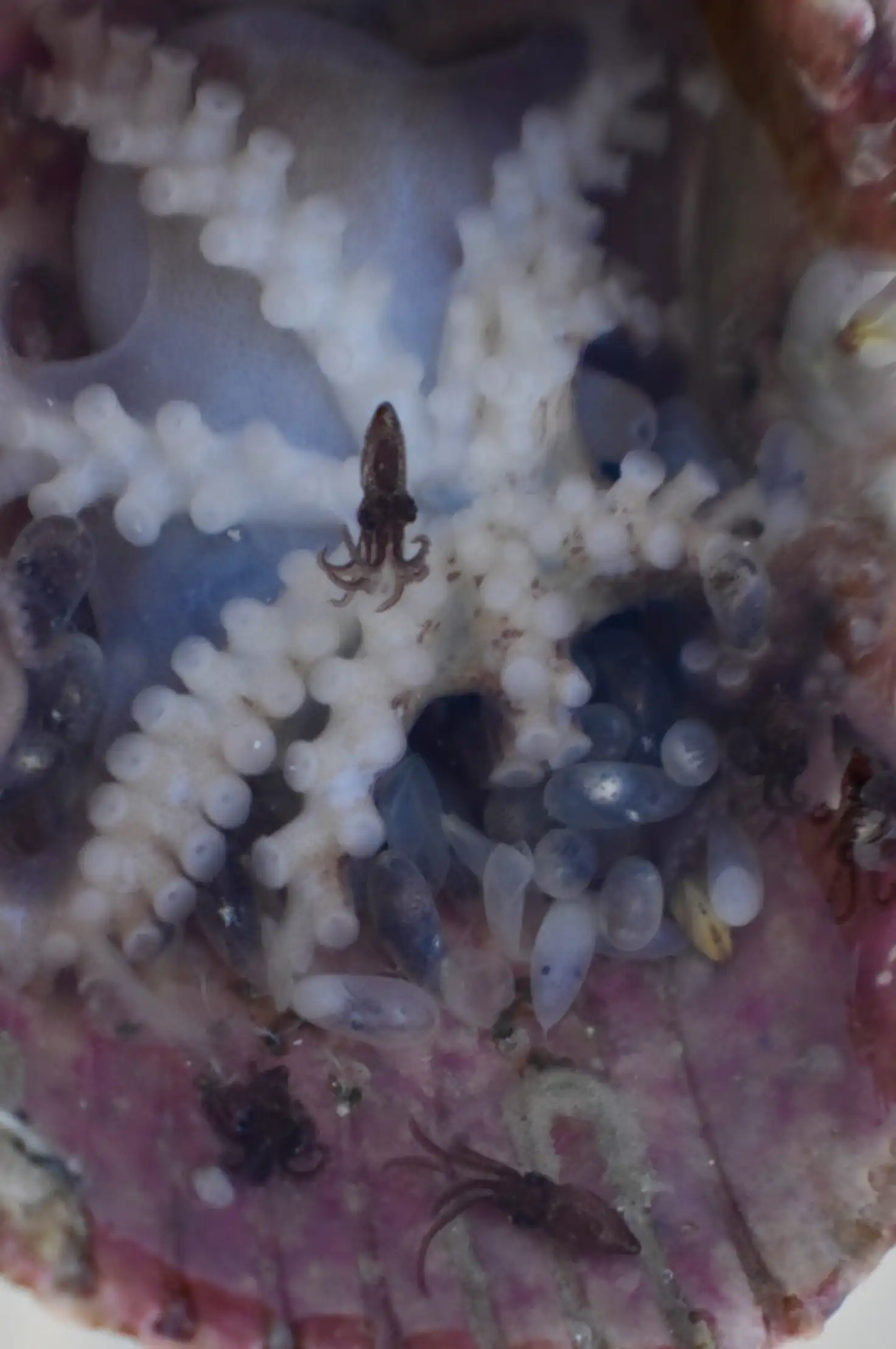
Helping the Octopus and Her Babies
Varner’s experience on the beach was a reminder of the importance of conservation and protecting wildlife. By taking the time to help the pygmy octopus and her eggs, Varner made a real difference in the lives of these creatures. She was able to give the octopus a fighting chance to survive and even observed the hatching process, which is an unforgettable experience.
Helping animals in need, whether it’s returning them to the water or protecting their natural habitats, is vital for preserving our ecosystems. Varner’s actions serve as an inspiring example of how small acts of kindness can have a lasting impact on the natural world.
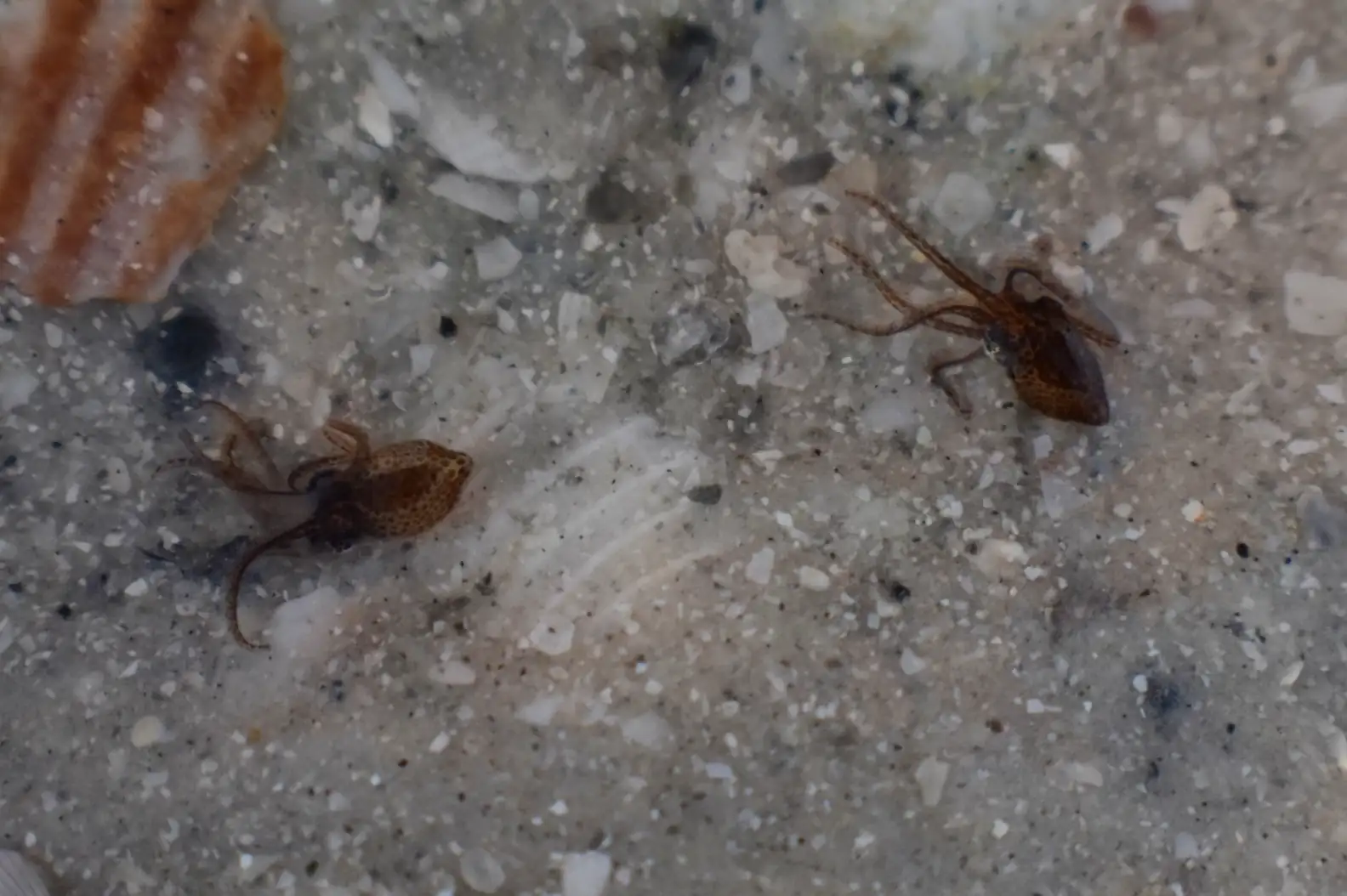
Learn More About Animal Encounters and Conservation
For more inspiring stories about animals and the incredible efforts of individuals to protect them, check out the following articles:
- Man Loses 360 Pounds Naturally, Internet Rallies to Support His Next Step
- Tammy Hembrow’s Bikini Photos Are Stirring Controversy — Here’s Why Everyone’s Talking
These stories are a testament to the power of compassion, care, and the role we all play in protecting wildlife.
